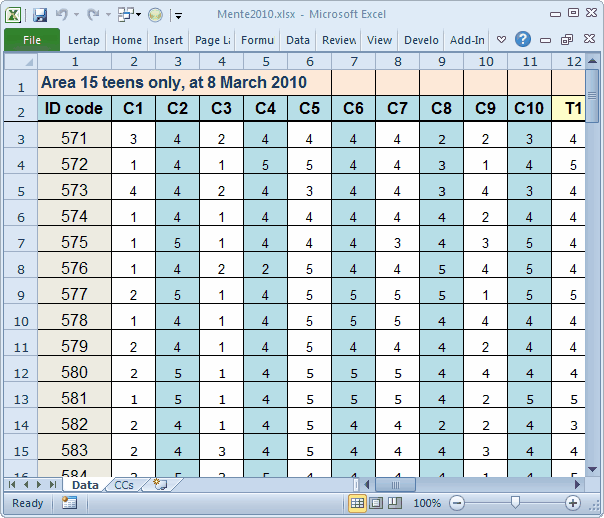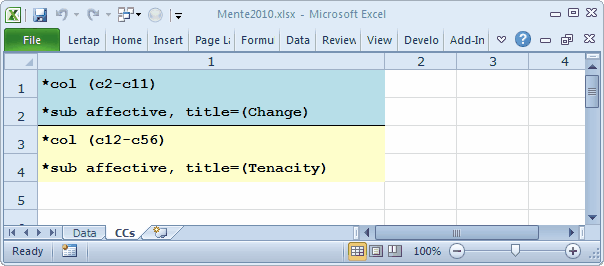Mente2010
A "mature-aged" doctoral student took on the task of developing a new test of what will here be called mental "tenacity".
His goal was to produce an instrument which would rival the quality of two popular, widely-used tests, but be substantially less expensive for people to take (the other tests could cost as much as $155 for a student to sit; our doctoral student, working with backing from a major test publisher, sought to come forth with an instrument which would cost under $40 per sitting).
By mental "tenacity" is meant the propensity of a person to persist with a task in the face of adversity. We all know that some people are prone to give up when faced with a new challenge, while others are inclined to persist, even when the going gets really tough. Those who persist are said to be tenacious. Tenacious people would be expected to do well on the doctoral student's new instrument.
The doctoral student developed an initial pool of 80 test items. Sample items would have been similar to these:
(1) |
I thrive when presented with a difficult task. |
|
1 |
strongly disagree |
|
2 |
disagree |
|
3 |
undecided |
|
4 |
agree |
|
5 |
strongly agree |
|
(2) |
I feel stressed when faced with a challenge I know others find hard to master. |
|
1 |
strongly disagree |
|
2 |
disagree |
|
3 |
undecided |
|
4 |
agree |
|
5 |
strongly agree |
|
After a typical review process in which experts judged the items in the initial pool, a trial instrument using 45 of the 80 items was developed for pilot testing. The doctoral student, his major professor, and the test publisher all recognised that this was still too many items -- it was thought that the final test should have no more than 40 items, hopefully even fewer.
The Data and CCs worksheets for this study are seen below.


Responses to the 45 trial items start in column 12 (c12) of the Data worksheet.
The doctoral student included ten other items in his study, C1 through C10. These items were drawn from an area of the literature which has to do with how people perceive their ability to change: are our mental and physical abilities set, or can we improve on them? (Similar to the "nature" versus "nurture" debate.)
In this case, the ten items included in the pilot test were similar in tone to these:
(C1) |
We can always learn to do new things, even when they may require much effort. |
|
1 |
strongly disagree |
|
2 |
disagree |
|
3 |
undecided |
|
4 |
agree |
|
5 |
strongly agree |
|
(C2) |
Our ability to master things is limited to the set of skills given to us at birth. |
|
1 |
strongly disagree |
|
2 |
disagree |
|
3 |
undecided |
|
4 |
agree |
|
5 |
strongly agree |
|
Questions like these are sometimes used to get an idea of a person's potential to succeed at something which she or he has not done before, such as playing polo, learning a new language, or playing a musical instrument. Some people might say, for example, when presented with the challenge of learning Thai, "No way, Jose. I have no ability at all for languages", while someone else might say "Well, I only speak English. Thai is said to be difficult, but sure, why not, I can give it a try".
Try this?
